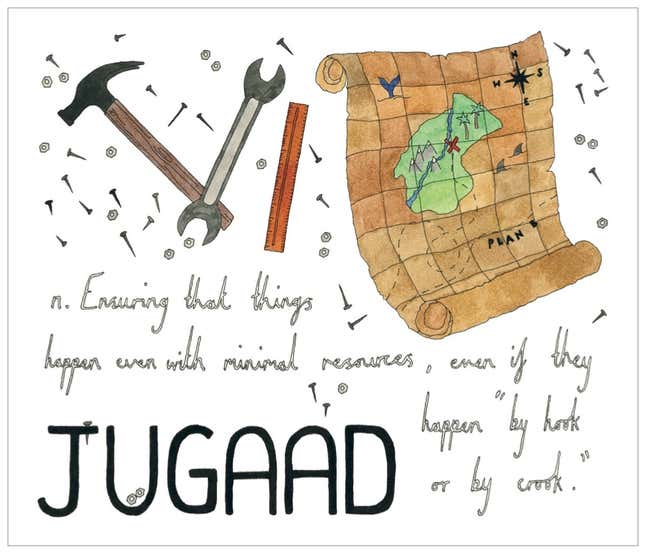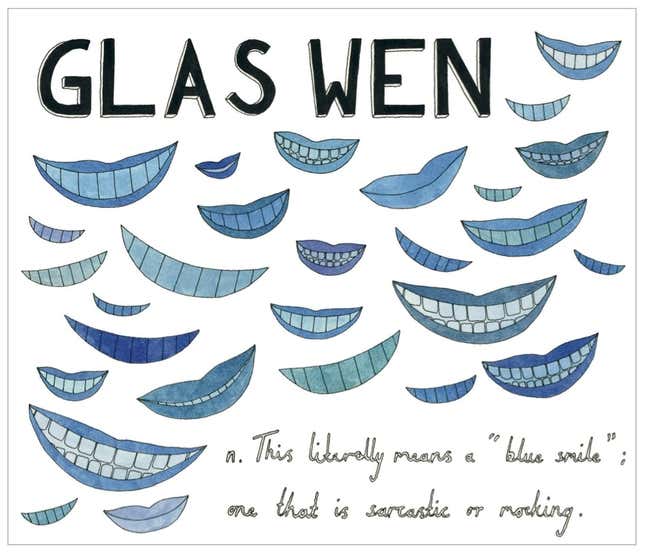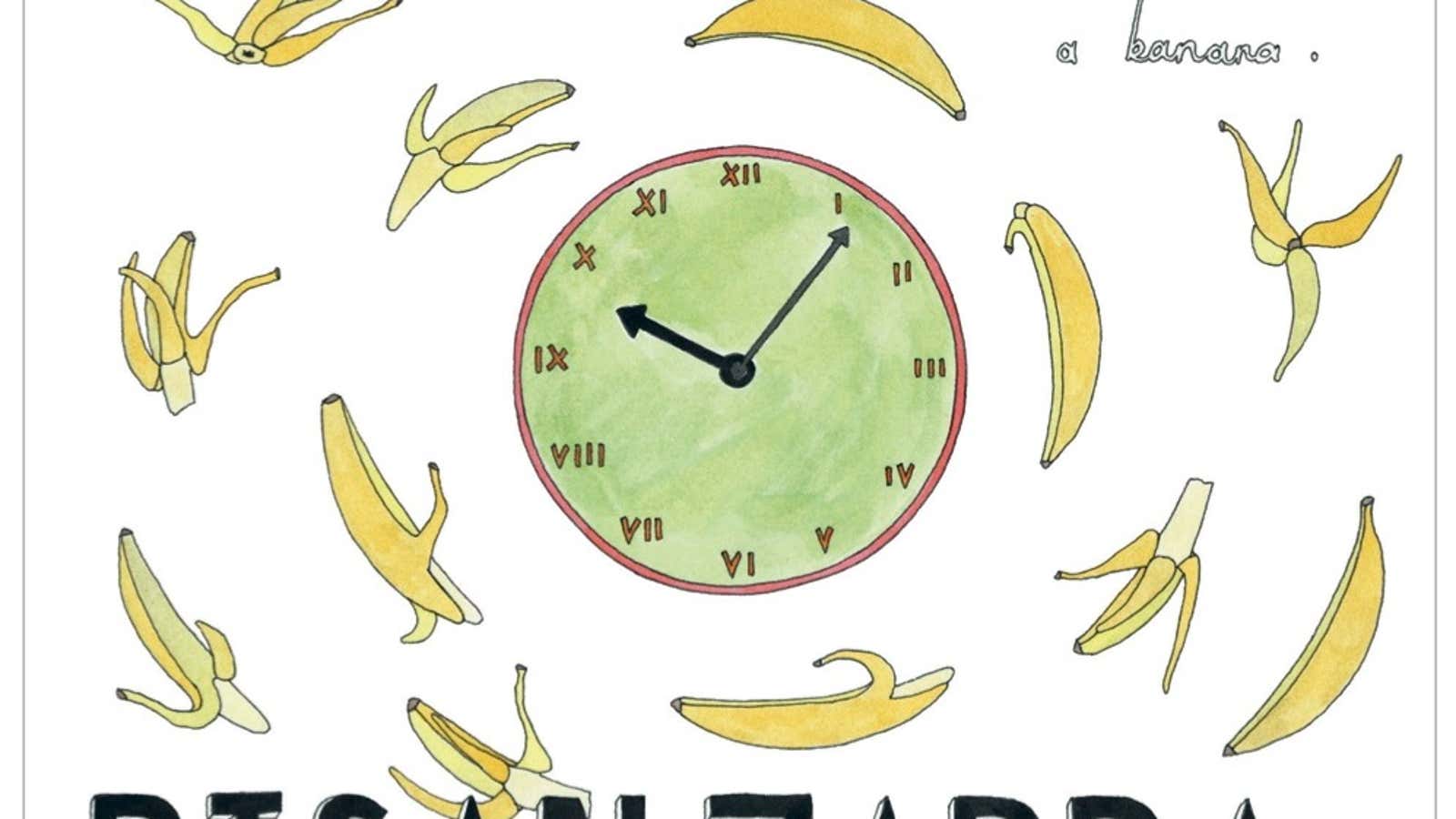Warmduscher, in German, refers to a Goldilocks-like person who only takes warm showers, implying that he is a bit of wimp. Gurfa, in Arabic, is the amount of water than can be held in one hand. Nunchi, in Korean, is the art of listening and gauging another’s mood.
We have all met these people or felt these emotions, but probably never had the vocabulary to describe them. Like schadenfreude, the German term for deriving pleasure from someone else’s misfortune, the words are not directly translatable into English.
Ella Frances Sanders, a writer and illustrator, has compiled some of the most evocative words from around the world in a new illustrated book, Lost in Translation, published by Penguin Random House next month in the United Kingdom and last year in the US. Here are some that we think might be useful at work, at home, and everywhere else:

- Tretår (Swedish): On its own, “tår” means a cup of coffee and “patår” is a refill, so “tretår” is a second refill, or a “threefill.”
- Tsundoku (Japanese): Leaving a book unread after buying it, typically piled up together with other unread books.
- Cotisuelto (Caribbean Spanish): A man who insists on wearing his shirt tails untucked.

- Struisvogelpolitiek (Dutch): Literally, “ostrich politics.” Acting like you don’t notice when something bad happens and continuing on regardless as you normally would.
- Poronkusema (Finnish): The distance a reindeer can comfortably travel before taking a break.
- Drachenfutter (German): Literally, “dragon-fodder.” The gift a husband gives his wife when he’s trying to make up for bad behaviour.
